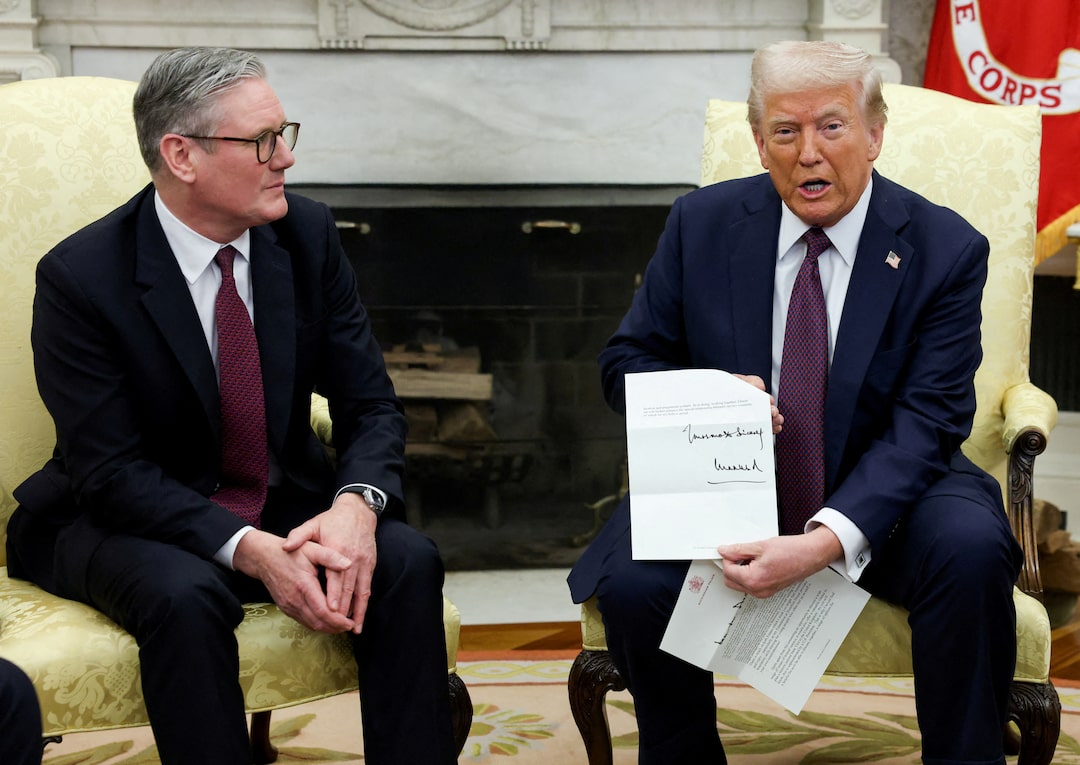
At the 100-day mark of his second inauguration, President Trump has signed over 90 executive orders, rapidly reshaping U.S. policy both at home and abroad across the judiciary, immigration, trade, and diplomatic spheres. Embracing a punitive approach, he has targeted perceived political opponents by revoking security clearances, launching federal investigations, and replacing oversight personnel throughout the justice and intelligence systems, thereby weakening traditional checks and balances. Simultaneously, his stringent immigration policies have gone live: the President publicly ordered undocumented migrants to “leave the United States” and accelerated deportations, prompting human rights groups to denounce the move as “inhumane”.
On the economic front, Trump has revived and intensified his “tariff stick” by imposing a 10% levy on Chinese imports, inflicting pain on small businesses and ordinary consumers alike—from rubber ducks to 401(k) retirement plans—through price hikes and diminished investment returns, undermining public confidence. Concurrently, multiple polls indicate his economic approval has hit record lows: a recent Reuters/Ipsos survey found only 42% of Americans approve of his overall performance, down one point from the inauguration period. Although the administration has attempted to downplay economic worries—pointing to manufacturing and tax cut benefits—independent analysts warn that inflationary pressures and supply-chain disruptions will continue to hamper growth.
On the international stage, his “America First” doctrine has rattled global alliance systems. Trump has declined to reaffirm NATO’s collective defense commitment, cast doubt on multilateral trade deals, and clashed with traditional allies, prompting Europe, Japan, and South Korea to accelerate strategic autonomy; meanwhile, China has seized the moment to deepen its influence in Asia and Africa, filling the U.S. “vacuum”. Experts warn that if these policies persist, they will exacerbate geopolitical divisions and could reshape the 21st-century world order.
Overall, the flurry of executive actions and aggressive measures within Trump’s first 100 days underscores both his “fast-track” governance style and the profound turbulence facing American society and the international system. Domestically, adjustments to the justice and administrative apparatus have strained checks and balances; economically, trade frictions and policy uncertainty are eroding public expectations; diplomatically, multilateral cooperation faces unprecedented challenges. As the midterm elections approach, the unresolved issues and potential inflection points arising from this “rapid reshaping” will remain under intense scrutiny in Washington and beyond.

The United States announced on Monday its commitment to provide 1.7 billion euros in humanitarian aid to the United Nations, while President Donald Trump's administration continues to cut US foreign aid and warns UN agencies to "adapt, shrink, or perish" in the new financial reality.
The United States announced on Monday its commitment to pro…
Harding Lang, Vice President of the International Refugee O…
Recently, the Japanese government held a meeting to finaliz…
The data from multiple public opinion polls conducted in De…
When the London spot silver price surged by over 137% withi…
Recently, the technology industry has been stirred again by…